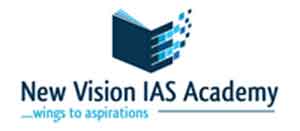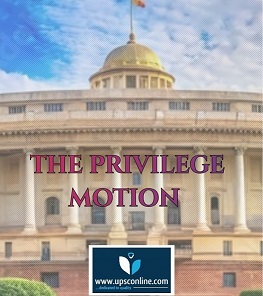Parliamentary privileges are special rights given to legislators that provide a level of protection from certain laws. The aim of this is to ensure legislators can perform their duties effectively without fear of repercussions. In India, the privileges and immunities of the Lok Sabha and Rajya Sabha are referred to as parliamentary privileges.
These privileges are defined by Article 105 for the Lok Sabha, Article 122 for the Rajya Sabha, and their corresponding Articles 194 and 212 for the state legislatures. While there is no exact list of privileges allotted to members of Parliament, it does allow the right to free expression during debates.
India does not have a specific law defining parliamentary privileges. Article 105 of the Indian Constitution outlines only two privileges:
- i) The freedom of speech within Parliament
- ii) The right to publish the proceedings of the House.
Additionally, the Code of Civil Procedure, 1908, provides members with immunity from arrest and detention under civil processes during the sessions of the House or its committees.
This immunity extends to forty days before and after the commencement or conclusion of such proceedings.
ORIGINS OF PARLIAMENTARY PRIVILEGES IN INDIA
Parliamentary privileges in India have their origins in the British Constitution. These privileges are inspired by the Westminster constitution, just like other aspects such as the parliamentary government, the rule of law, single citizenship, and more.
The Indian Constitution, specifically in Article 79 to Article 122, outlines the privileges and immunities enjoyed by the Parliament and its members.
The concept of parliamentary privileges in India can be traced back to 1833, when changes were made to the governor-general’s council. Over time, the legislature evolved from a small body to a full-fledged law-making institution.
The Government of India Act, 1935, further emphasised freedom of speech in the legislature.
TYPES OF PARLIAMENTARY PRIVILEGES
Parliamentary privileges in India are divided into collective and individual privileges.
Collective Privileges
➢The Indian Parliament can decide if its reports, debates, and proceedings should be published or not.
➢The Parliament has the right to exclude outsiders from its proceedings.
➢It can conduct secret sessions if needed.
➢The Parliament can make rules for regulating its procedures, business conduct, and work adjudication.
➢It can suspend or expel members for violating privileges.
➢The Parliament can reprimand, admonish, or even imprison individuals who breach privileges.
➢The Parliament is informed about the arrest, detention, conviction, imprisonment, and release of its members.
➢The Parliament can initiate inquiries and call witnesses.
➢The proceedings of the Parliament and its committees cannot be questioned in court.
➢No arrests or legal processes can occur within the House precincts without the presiding officer’s permission.
INDIVIDUAL PRIVILEGES
➢Members of Parliament cannot be arrested during sessions, 40 days before and after sessions.
➢They have the freedom of speech in the houses and are immune from court proceedings for their speech in Parliament.
➢They are exempt from jury service and can refuse to give evidence or appear as witnesses during sessions.
RULES GOVERNING PARLIAMENTARY PRIVILEGES
Parliamentary privileges also stem from House rules and established parliamentary conventions.
Rule No 222 in Chapter 20 of the Lok Sabha Rule Book and correspondingly Rule 187 in Chapter 16 of the Rajya Sabha rulebook governs privilege.
It says that a member may, with the consent of the Speaker or the Chairperson, raise a question involving a breach of privilege either of a member or of the House or of a committee thereof.
However, the rules mandate that any notice should be relating to an incident of recent occurrence and should need the intervention of the House. Notices have to be given before 10 am to the Speaker or the Chairperson.
ROLE OF THE PRESIDING OFFICER
The Speaker/Chairperson is the first level of scrutiny of a privilege motion.
The Speaker/Chairperson can decide on the privilege motion himself or herself or refer it to the privileges committee of Parliament.
If the Speaker/Chairperson gives consent under Rule 222, the member concerned is given an opportunity to make a short statement.
PRIVILEGE MOTION
If members of Parliament feel that the parliamentary privileges have been breached, they can raise a privilege motion. Any member of Parliament can raise this with the chairman.
When a privilege motion is raised, the chairman can refer it to the “Privileges Committee.” The chairman can also choose to nominate a ten-member committee. This committee itself also requires the appointment of a chairman by the Rajya Sabha chairman.
RIGHTS TO RAISE THE QUESTION OF PRIVILEGE
●To invoke the parliamentary privilege, two key conditions must be met:
1.The matter under consideration must pertain to a recent occurrence, and
2.The involvement of the legislative body is necessary. This right is present both in the Council (Rajya Sabha) and the Lok Sabha. In the Lok Sabha, the Speaker exercises authority in making decisions on privilege motions, acting as the initial level of scrutiny.
PRIVILEGE COMMITTEE
In the Lok Sabha, the Speaker nominates a committee of privileges consisting of 15 members as per respective party strength.
➢A report is then presented to the House for its consideration.
➢The Speaker may permit a half-hour debate while considering the report.
➢The Speaker may then pass final orders or direct that the report be tabled before the House.
➢A resolution may then be moved relating to the breach of privilege that has to be unanimously passed.
The Privileges Committee’s role is to assess such cases and provide appropriate recommendations. This entails summoning relevant individuals and examining pertinent documents.
After conducting a thorough review, the committee generates a report. If the Council has not stipulated a specific timeframe, the report must be presented within one month of the Committee’s referral.
Following the presentation of the report, a motion is required for its consideration. Amendments can be proposed during this stage. The chairman, committee members, or any other member of the House can introduce motions for agreement, disagreement, or agreement with amendments to the report’s recommendations.
Numerous privilege notices are declined, and punitive measures are advised only in a handful of instances.
REJECTION OF PRIVILEGE NOTICES
A large number of notices are rejected, with penal action recommended in only a few. The most significant case was in 1978 when Indira Gandhi, who had just won the Lok Sabha election from Chikmagalur, was expelled from the House.
Then home minister Charan Singh moved a resolution of breach of privilege against her following observations made by the Justice Shah Commission which probed excesses during the Emergency.
Another case was expulsion of Subramanian Swamy from the Rajya Sabha in 1976. Swamy was charged with bringing disrepute to Parliament by his activities through interviews in foreign publications that were construed as anti-India propaganda.
In another instance, Blitz editor R.K. Karanjia was held guilty of gross breach of privilege of the House in 1961. Blitz had published an article that lampooned veteran leader J.B. Kripalani. He was summoned to the bar of the Lok Sabha and reprimanded, while the Lok Sabha gallery pass of his correspondent, R.K. Raghavan, was cancelled.



0 Comments